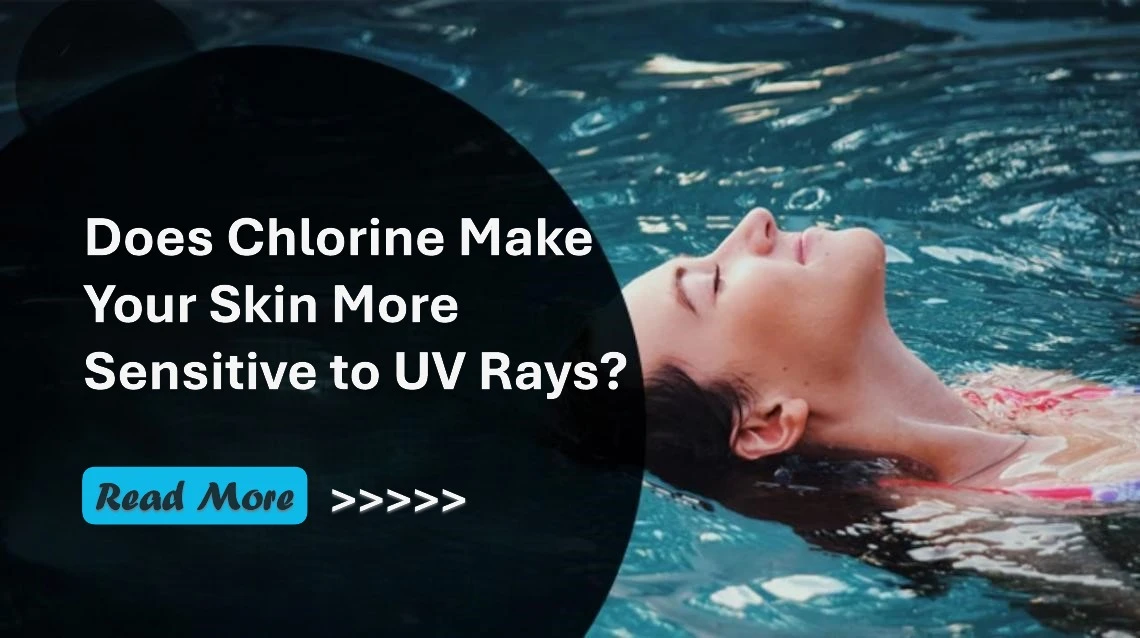Does Chlorine Make Your Skin More Sensitive to UV Rays? Exploring the Link Between Pool Chemicals and Sun Exposure
Does Chlorine Make Your Skin More Sensitive to UV Rays? Exploring the Link Between Pool Chemicals and Sun Exposure
Swimming in a pool is a refreshing way to cool off and stay active, especially in the summer. However, many swimmers report feeling more sunburned or sensitive to sunlight after spending time in chlorinated water. This raises an important question: does chlorine make your skin more sensitive to UV rays? While chlorine doesn’t directly increase UV sensitivity in the same way some medications or skin treatments do, it can indirectly heighten your skin’s vulnerability to sun damage. Let’s explore how.
How Chlorine Affects the Skin’s Barrier
Chlorine is a powerful chemical used to disinfect pool water, but it can also be harsh on the skin. It strips away the natural oils and lipids that form the skin’s protective barrier. This barrier plays a crucial role in keeping the skin hydrated and defending it from environmental stressors—including UV radiation.
When chlorine weakens or disrupts this barrier, the skin becomes dry, irritated, and more permeable. This compromised condition can make it easier for UV rays to penetrate and damage the deeper layers of the skin, amplifying the effects of sun exposure.
Increased Risk of Sunburn After Swimming
The combination of chlorinated water and direct sunlight can be particularly harmful. Here’s why:
-
Barrier Disruption = Lower Natural Defense
Without its normal lipid layer, your skin loses some of its ability to protect against UVB and UVA rays, which are responsible for sunburn, premature aging, and even skin cancer. -
Microscopic Skin Damage
Chlorine can cause microscopic cracks and inflammation in the skin. This low-level irritation primes the skin for further damage when exposed to sunlight, potentially leading to faster or more intense sunburns. -
Reflective Surfaces Compound Exposure
Pool water reflects sunlight, increasing UV intensity on exposed skin. When chlorine has already dried and sensitized your skin, this amplified exposure can worsen the impact.
Signs of Chlorine-Related UV Sensitivity
-
Burning sensation or redness shortly after sun exposure
-
Uneven tanning or patchy pigmentation
-
Flaking or peeling skin post-swim
-
Skin feeling tight, itchy, or irritated even after applying sunscreen
How to Protect Your Skin
To prevent chlorine-related UV sensitivity and sun damage, follow these steps:
-
Apply a water-resistant, broad-spectrum sunscreen (SPF 30 or higher) 15–30 minutes before swimming.
-
Reapply sunscreen immediately after swimming, especially if towel-drying.
-
Shower with fresh water after swimming to remove chlorine residues.
-
Use a gentle cleanser and hydrating moisturizer to restore your skin barrier.
-
Wear UV-protective clothing or swim shirts when outdoors for extended periods.
Conclusion
While chlorine doesn’t inherently increase your skin’s UV sensitivity like certain drugs or treatments, it weakens your skin’s natural defense against the sun by drying it out and disrupting its protective barrier. This indirect effect can make your skin more prone to sunburn and UV damage after swimming. Proper sun protection and after-swim skincare are essential to keep your skin healthy and shielded from harmful rays.

Related Blog
What Causes Oily Skin and Can It Be Managed Naturally? Exploring Root Causes and Gentle Solutions
Aug 2, 2025 by Admin
General
What Are the Signs That You Have Sensitive Skin? Key Symptoms to Help You Identify This Delicate Skin Type
Aug 1, 2025 by Admin
General